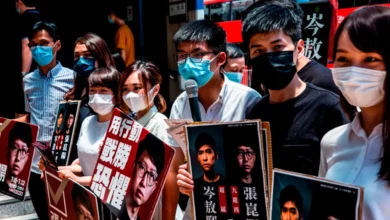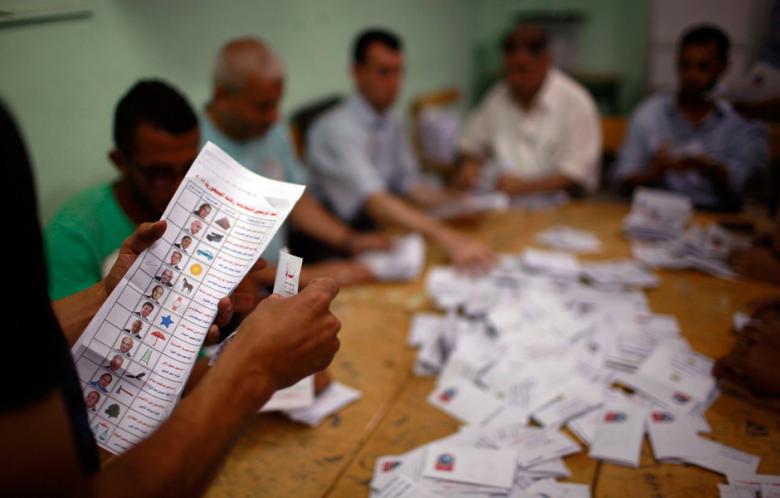To be a liberal is to be democratic. That’s a no-brainer.
In Egypt, as in American foreign policy, however, the situation is made complicated by obvious betrayals of democratic principles by many of those claiming liberalism as their political ideology of choice.
Let’s take a brief excursion into recent Egyptian politics to see how the “liberal” attack on democracy has played out in contemporary Egypt.
In June, the Supreme Council of the Armed Forces and a judiciary composed largely of ousted President Hosni Mubarak appointees worked together to disband Egypt’s first ever democratically elected Parliament on a technicality.
One would think that such a slap in the face would be a disturbing occurrence for any lover of post-revolution democracy. One would think.
Many Egyptian “liberals” didn’t object to the ruling, however. Some even openly praised it. Why? Because the People’s Assembly was dominated by Islamists, and many “liberals” were not able to stomach the thought of living with an Islamist-led Parliament for four years. In short, “liberal” distaste for Islamists caused them to betray their alleged democratic principles.
This narrative will not sound strange to anyone familiar with modern American foreign policy, which has witnessed successive US overthrows of democratically elected regimes because electorates (in Palestine, Guatemala, Iran and Brazil, among other places) have, in the opinion of the White House, voted wrong.
Many Egyptian “liberals,” like American administrations, don’t seem to have gotten the message that, in democracy, numbers count and the majority wins, even if they’re Islamists. Believing in an exclusive democracy –– democracy for "us," but not for "them" –– doesn't make one a democrat.
More recently, in July, when newly elected President Mohamed Morsy’s move to reinstate the People’s Assembly was blocked, many “liberals” just shrugged. Some didn’t even shrug.
In August, Morsy, in an effort to fulfill an important revolutionary demand, tried to oust the prosecutor general, a man appointed by Mubarak and scheduled to remain in his post for the rest of his working life. Once again, Morsy was prevented from fulfilling a democratic aim and, once again, Egypt’s liberals did, and said, next to nothing.
More recently, and perhaps most importantly, the democratically assembled group in charge of writing the new constitution had been threatened by both the judiciary and liberal political forces. Reports suggest the judiciary was close to disbanding the assembly, even as they put the finishing touches on Egypt’s new national charter.
The Constituent Assembly provides an important stopping point. About 20 of the 54 non-Islamists on the 100-member committee had recently jumped ship, complaining of inordinate Islamist influence on the document.
The resignations came in spite of the fact that, according to reliable reports from both within and outside the assembly, the overwhelming majority of articles in the country’s new constitutional draft had been agreed upon by Islamists and liberals alike, with highly conservative Islamists largely backing off of religious demands.
Recently, reliable sources have also confirmed that many of the liberals who jumped ship were not so much upset with the articles as they were than the fact that most assembly members were not listening to one of their key “democratic” demands –– that Morsy’s presidency end as soon as the new constitution takes effect and new presidential elections can be held.
Prominent liberal socialist and former presidential candidate Hamdeen Sabbahi, openly voiced that “liberal” concern in October when he called on Morsy to step down after the completion of the constitution, while, in the same breath, admitting that he would never accept such a proposition had he won the election.
If “liberal” attempts to limit Morsy’s tenure were not enough, credible threats had surfaced recently that the judiciary would rule to cancel Morsy’s July constitutional declaration and reinstate the previous SCAF declaration (limiting presidential powers and giving SCAF ruling authority over the constitution) and disband the Shura Council, the democratically elected upper house of parliament.
After disbanding of the People’s Assembly, the blocking of the removal of the prosecutor general, and threats to end the Constituent Assembly, disband the Shura Council, end Morsy’s rule early and reinstate the anti-democratic SCAF directive, President Morsy may have had little choice but to give himself temporary sweeping powers in an effort to save Egypt’s democratically elected institutions and the constitution-building process.
Predictably, many of Egypt’s “liberals” complained that Morsy’s move –– which, from a public relations standpoint, was not handled nearly as well as it could have been –– proved he was a Mubarak-style dictator. His decree, in fact, provided liberals with ammunition to remove him from power or limit his weight, measures they had already sought.
The “liberal” concerns over Morsy’s suggested temporary “dictatorship” are a bit confounding, though, given the dominant “liberal” stance in March 2011 – that the interim period governed by SCAF, and in which the military rulers held extensive powers, be extended for up to two years.
Egyptian “liberals,” like Mohamed ElBaradei, who suggested the elongated SCAF-run interim period himself, didn’t appear concerned that legislative and executive powers would lie in the hands of the unelected military powers already firmly entrenched in Egypt’s political power structure.
The recent uproar over President Morsy’s decree has featured open calls to burn down Muslim Brotherhood offices, revolt against Morsy, and involve western countries, among other “liberal” suggestions.
To be fair, though, there are fair-minded liberals in Egypt, including Mohamed Al-Omdah, who has recently denounced Sabbahi – the man he campaigned for just six months ago – for his anti-democratic positions.
Of course, no one, except Morsy and his inner circle, knows for sure whether Egypt’s first democratically elected president desires a Mubarak-style dictatorship, or worse. It would seem prudent –– and more democratic –– to wait until Morsy’s timeline comes and goes before making sweeping claims of “pharaoh” and “dictator.” If, in three or four months, it becomes clear Morsy’s power grab isn’t temporary, the “liberals” will have the support of the overwhelming majority of the Egyptian street to initiate a popular and democratic revolt. I will be the first to initiate calls for protest should that happen.
The picture should, by now, be clear: Many of Egypt’s “liberals” were mostly content with the disbanding of the democratically elected People’s Assembly, desired to end the term of their democratically elected president almost before his term started, and, in the absence of a response to that demand, to throw out the entire constitution-building process, effectively bringing Egypt’s democratic project back to a proverbial ground zero.
Indeed, instead of galvanizing themselves for future elections, liberals are actively trying to figure out how to illegally, unethically, and undemocratically get rid of what is clearly the strongest political force in the country.
As sad as it may sound, the contemporary reality in Egypt is this: There are some in Egypt who respect democracy, and they are largely Islamists. Bobby Ghosh of Time Magazine was correct when, in 2011, he said that Islamists are Egypt’s best democrats.
Many of Egypt’s liberals, on the other hand, have a long way to go before they can legitimately call themselves democrats. For now, they are “deterring democracy” – to borrow from Noam Chomsky – in ways not altogether dissimilar from those of successive American administrations.
Mohamad Hamas Elmasry, Assistant Professor, Department of Journalism and Mass Communication, The American University in Cairo.




